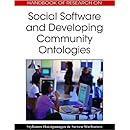The distinction between natural and non-natural information is highlighted by Laurence Kirmayer, that on my opinion helps to define the smartness concept in modern artificially enhanced systems. Particularly smartness is created by a loop – from self-organised individuals’ meanings, values and actions the data are aggregated and patterned using algorithms to form collective knowledge, and then these data are offered back as new affordances, action cues for the individuals. The human action niches are based on developing non-natural information cues and affinity to certain cultural memberships.
Grice (1957) distinguished between natural and non-natural forms of meaning, emphasizing the latter in most of his work. Natural meaning is a relation between two things that are correlated. Smoke ‘means’ fire because tokens of smoke reliably correlate with tokens of fire. Similarly, (certain kinds of) spots mean measles (understood not as the popular category but as the biomedically recognized infection with a particular virus). Non-natural meaning instead depends on the capacity of individual agents to exploit explicit and implicit social‘ conventions’(in the wide sense of locally shared norms, values and moral frames, expectations, ontologies, etc.) to infer the intentional states of other agents and thereby engage them or engage aspects of the environment with them. Red traffic lights, in virtue of convention (and law), ‘mean’ stop, and hence afford (and mandate) stopping — and this is made possible by the specifically human mastery of recursive inferences, both explicit and implicit, that agents make about other agents (Tomasello, 2014).
Different kinds of information (Piccinini, 2015; Piccinini & Scarantino, 2011; Scarantino & Piccinini, 2010).
‘Natural information’ obtains when a token informational vehicle x of kind X (that is, a sign, a pattern of neural activation, or what have you) carries natural information about some information source y of kind Y just in case there are reliable correlations between X and Y . Natural information, in other words, cannot misrepresent, for it is non-semantic; it is not the kind of thing that can be simply true or false.
‘non-natural information’ (or as we prefer to put it,‘conventional information’), pertains to semantic, content-involving representations that depend on social norms and cultural background knowledge. Non-natural information allows an agent to make a correct inference about some aspect of an intentional system, e.g., other agents, language and other symbolic systems such as mathematics, etc. Non-natural information is semantic in that it obtains in virtue of satisfaction conditions (e.g., truth conditions).
Kirmayer notes: “To operate with conventional affordances, agents must have shared sets of expectations — we must know what others expect us to expect.”
So smartness is not unconditional smartness but dependent of cultural constraints, it is a niche.









